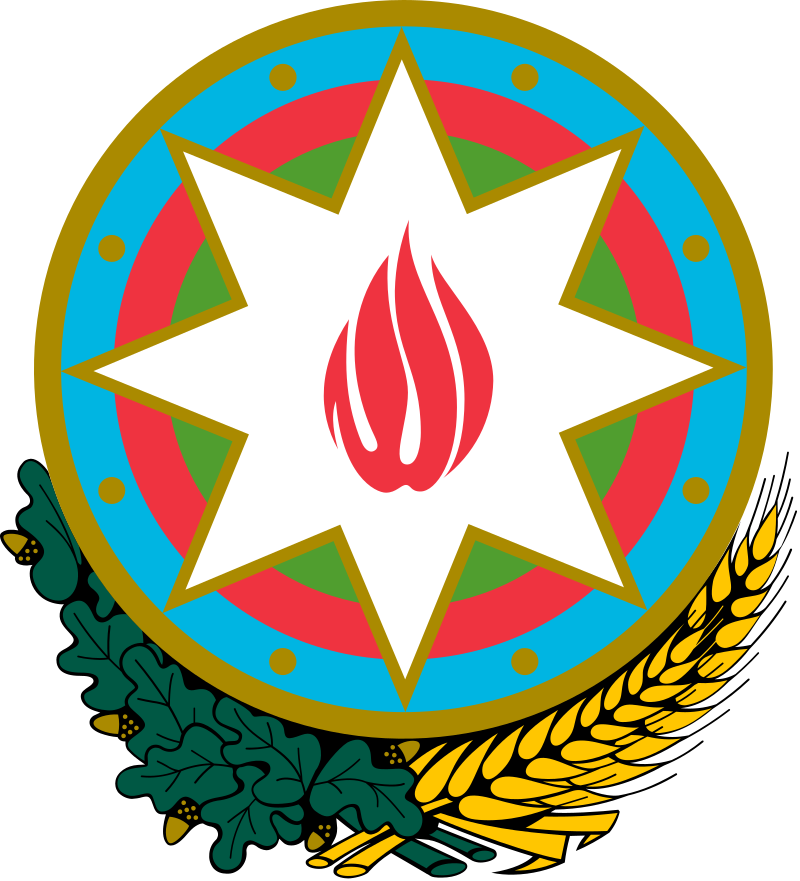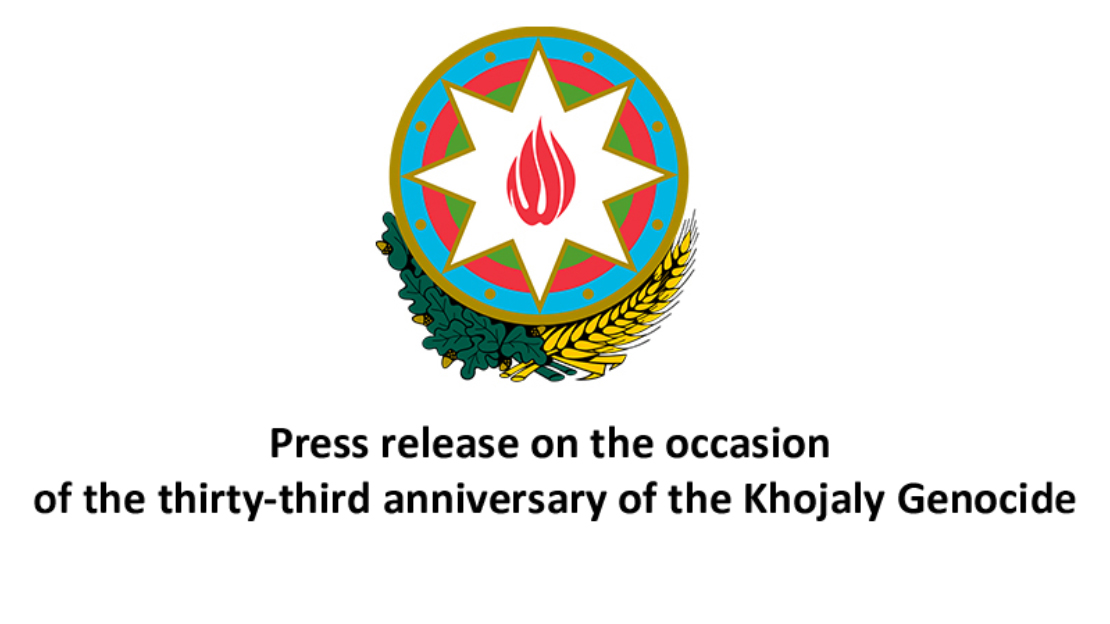Press release on the occasion of the thirty-third anniversary of the Khojaly Genocide
|
Azərbaycan Respublikasının |
 |
Permanent Mission |
|
633 Third Avenue, Suite 3210, New York, N.Y. 10017 |
||
|
Press release on the occasion of the thirty-third anniversary of the Khojaly Genocide
26 February 2025
This year marks the thirty-third anniversary of the largest massacre committed during the aggression of Armenia against Azerbaijan. On the night of 25 to 26 February 1992, the Armenian armed forces invaded the town of Khojaly in the Garabagh region of Azerbaijan, killing 613 civilians, including 106 women, 63 children and 70 elderly persons. Another 1,000 residents of Khojaly were wounded, 1,275 were taken hostage, and 150 went missing. The victims were treated with extreme brutality.
A number of international organizations, national parliaments, eminent international lawyers, foreign journalists, human rights activists and international non-governmental organizations condemned the slaughter in Khojaly as an act of genocide or a crime against humanity.[1]
The overall assessment of the causes and consequences of the aggression and the existing evidence make it absolutely clear that the crimes committed in Khojaly were not isolated or sporadic, but were part of widespread and systematic policy and practice of atrocities motivated by ethnic and religious hatred and intolerance.
Moreover, the prohibited methods and means of warfare throughout the conflict, such as the unlawful targeting of Azerbaijani civilians and peaceful settlements, the taking and holding of hostages, the mistreatment and summary execution of prisoners of war and civilian detainees, ethnic cleansing, the extensive destruction of inhabited areas and civilian infrastructure and the desecration and eradication of Azerbaijani cultural and religious heritage, were deliberately used by the aggressor to achieve and cement its military gains.
The counteroffensive operation and the local counter-terrorism measures carried out by Azerbaijan in the fourth quarter of 2020 and in September 2023, respectively, put an end to the unlawful occupation of its territories and ensured the restoration of its sovereignty and territorial integrity.
The liberated territories revealed the scale of human suffering and destruction. Since the end of the conflict in November 2020, 18 mass graves containing the remains of over 600 people have been discovered in those territories, including Khojaly. These mass graves shed light on the willful killing of many civilians and other persons protected under international humanitarian law.[2]
As to the legal consequences, the obligation of States to punish the most serious crimes is prescribed in the relevant international instruments, as well as has been repeatedly reaffirmed by the General Assembly and the Security Council.
However, most of the perpetrators, having found a safe haven in Armenia and other countries, continue to enjoy impunity. The denial and ignorance of their crimes, along with the attempts to obstruct justice by various political means and smear campaigns in mass media, parliaments and international bodies, constitute a clear contempt for international law and the rule of law and pose a threat to the prospects of durable peace in the region. Accountability for serious offences is imperative and must be inevitable.
Azerbaijan will never forget the atrocities committed against its people and will continue its efforts to ensure justice, as well as to build, sustain and strengthen peace and stability in the region. [1] See, for example, The Independent (29 February 1992); The Age (6 March 1992); Newsweek (16 March 1992); Time (16 March 1992); Report by the Memorial Human Rights Centre on massive violations of human rights committed in the seizure of Khojaly during the night of 25 to 26 February 1992, in Fiona Maclachlan and Ian Peart (eds.), Khojaly Witness of a War Crime: Armenia in the Dock (Ithaca Press, 2014), pp. 75–83; Letter dated 23 March 1997 from the Executive Director of Human Rights Watch/Helsinki addressed to the Minister for Foreign Affairs of Armenia, available at www.hrw.org/news/1997/03/23/response-armenian-government-letter-town-khojaly-nagorno-karabakh#; Council of Europe, Declaration adopted by the Committee of Ministers, 11 March 1992, doc. No. CM/Del/Concl(92)471bis; Organization of Islamic Cooperation, resolution No. 8/43-C on Affiliated Institutions, 18–19 October 2016, para. 8; Organization of Islamic Cooperation, final communiqué of the twelfth session of the Islamic Summit Conference, 6–7 February 2013, para. 117; European Court of Human Rights, App. No. 40984/07, Judgment of 22 April 2010, paras. 60–62 and 87; Thomas de Waal, Black Garden: Armenia and Azerbaijan through Peace and War (New York University Press, 2013), pp. 182– 185; Jessica A. Stanton, Violence and Restraint in Civil War: Civilian Targeting in the Shadow of International Law (Cambridge University Press, 2016), p. 237; Laurence Broers, Armenia and Azerbaijan: Anatomy of a Rivalry (Edinburgh University Press, 2019), p. 37; Malcolm N. Shaw, “Report on war crimes in the occupied territories of the Republic of Azerbaijan and the Republic of Armenia’s responsibility”, A/74/676-S/2020/90, annex; https://justiceforkhojaly.org/content/international-recognition-0; and https://justiceforkhojaly.org/content/countries-organizations. [2] See, for example, Letter dated 2 March 2022 from the Minister for Foreign Affairs of the Republic of Azerbaijan addressed to the Secretary-General, A/76/736-S/2022/176, annex; and Letter dated 13 January 2023 from the Permanent Representative of Azerbaijan to the United Nations addressed to the Secretary-General, A/77/695-S/2023/34.
|
||

